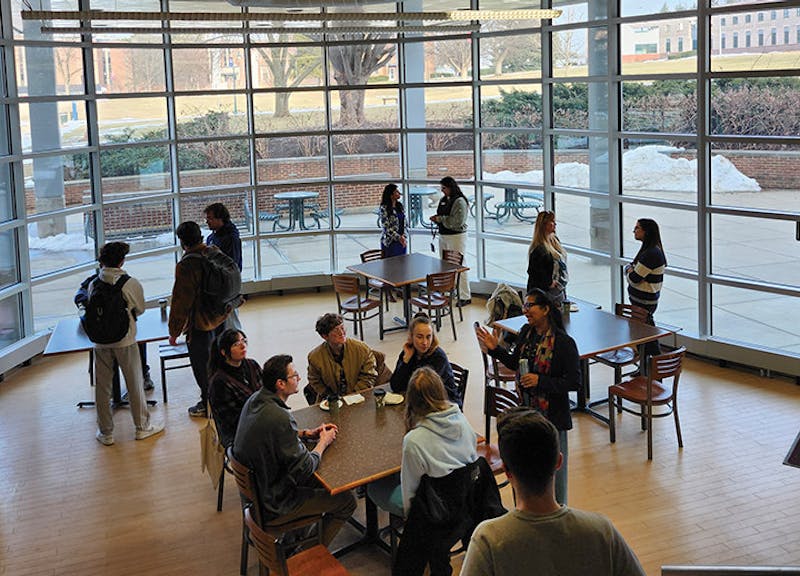From rich soil to a dead tree or even your own skin, fungus thrives in many locations and continues to grow by spreading spores through the air like pollen. Fungi can provide us with many resources such as medicine, biofuel, food and textiles, but it can also spread deadly diseases and weaken our immune system. Fungi are unique because they take apart their habitat to create something new that can be beneficial or harmful to humans.
The body of a fungus is called the mycelium, which is made up of interwoven, thread-like filaments called hyphae. Hyphae allow the mushroom to expand in all directions, giving it more area to spread its spores. Fungi have a secure cell wall made from chitin that forms everywhere on the fungi except the hyphae. Chitin can be found on insects and crabs to strengthen their exoskeleton like armor. The fungi’s cell walls secrete an enzyme which allows the mushroom to feed externally on its surroundings by absorbing nutrients.
Fungi can sprout in many locations across the world, decomposing organic matter and releasing valuable nutrients from their core to the soil. Fungi also assist in the growth of new plants by stimulating the plant to grow more roots. One fungus that helps in root growth is called the mycorrhizae. Mycorrhizae sprouts thin white roots that intertwine and expand the saplings roots, which allows the plant to get more nutrients and water from the soil into its system.
Fungi grow underground using a network of roots that spreads through the soil. When it is healthy and ready to reproduce, it will sprout above the soil and release its spores. Some mushroom systems create a phenomenon known as a “fairy circle” which is when mushroom sprouts circle around each other. Some cultures see the circle as sacred, saying that if you break the shape, bad luck will haunt you. Others use it as a sign to tell when fairies are nearby or that a portal to another dimension is open. However it may be seen, a fairy circle is generally a good indicator of a healthy fungi system.
Some mushrooms, such as the devil’s tooth, can release sweat from their cap that can be extremely beneficial for developing effective antibiotics. Artificial antibiotics created in labs will often cause the disease to be resilient to them, but with some species of mushroom, its sweat can evolve with the virus and effectively eliminate it every time. This process is also useful for diseases that are unknown and can’t be treated with modern medicine. Myco-medicine may be an evolving practice, but its discovery changes medicine as we know it.




The Slate welcomes thoughtful discussion on all of our stories, but please keep comments civil and on-topic. Read our full guidelines here.